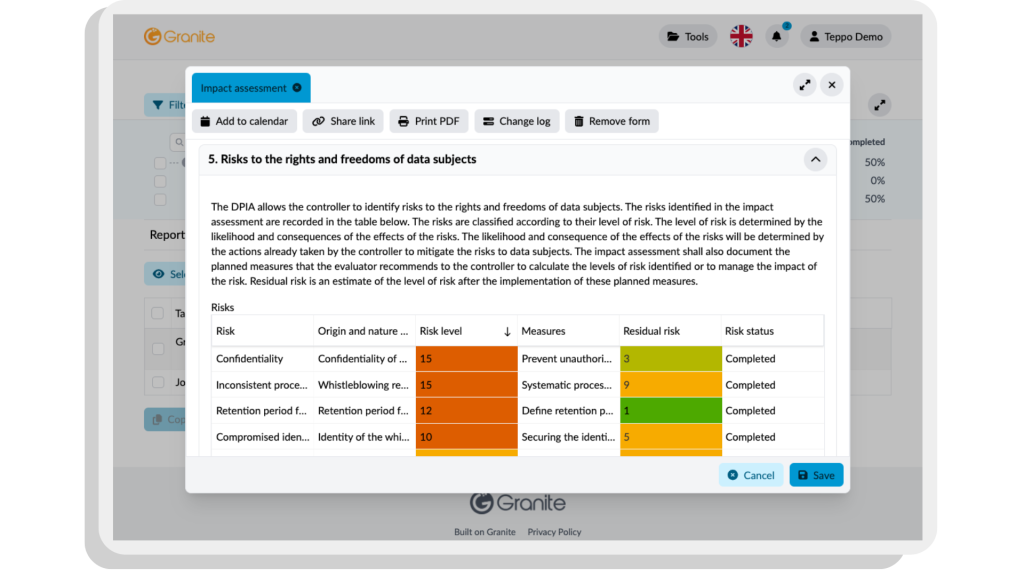Identify, assess, and manage risks associated with personal data processing and ensure GDPR compliance with the Granite DPIA – Data Protection Impact Assessment tool.

DPIA (Data Protection Impact Assessment) is a process designed to identify, assess, and manage the risks associated with personal data processing. This assessment is particularly important in situations where data processing is likely to pose a high risk to the rights and freedoms of data subjects. DPIA is a key component of the GDPR (General Data Protection Regulation) risk-based approach and aims to ensure that data protection obligations are met, and that personal data processing is safe and in compliance with laws and regulations.
The Granite DPIA – Data Protection Impact Assessment tool is designed to comprehensively support organisations in conducting data protection impact assessments.
The tool helps document personal data processing principles systematically, assess the proportionality and necessity of the processing, and ensure the rights of data subjects are respected.
The tool documents the impact assessments, supporting the organisation’s compliance efforts and mitigating risks.
The Granite DPIA – Data Protection Impact Assessment tool allows organisations to systematically manage the risks associated with personal data processing and ensures GDPR compliance. The tool supports organisations in implementing data protection measures and enhances their ability to safeguard the rights of data subjects effectively.

Proactively identify and assess the risks associated with personal data processing, particularly in high-risk scenarios.

Utilise a structured software solution that ensures a consistent and transparent assessment process.

Ensure your organisation meets GDPR requirements effectively and reliably.

Document identified risks and corrective actions, demonstrating compliance with data protection requirements.

Monitor the progress of the impact assessment and generate automated reports and logs to support verification.

Extend the use to low-threshold reporting of data security and data protection incidents, as well as compliance with ISO/IEC 27001.
We can do a short demo, set up a free trial, or simply discuss your needs.
